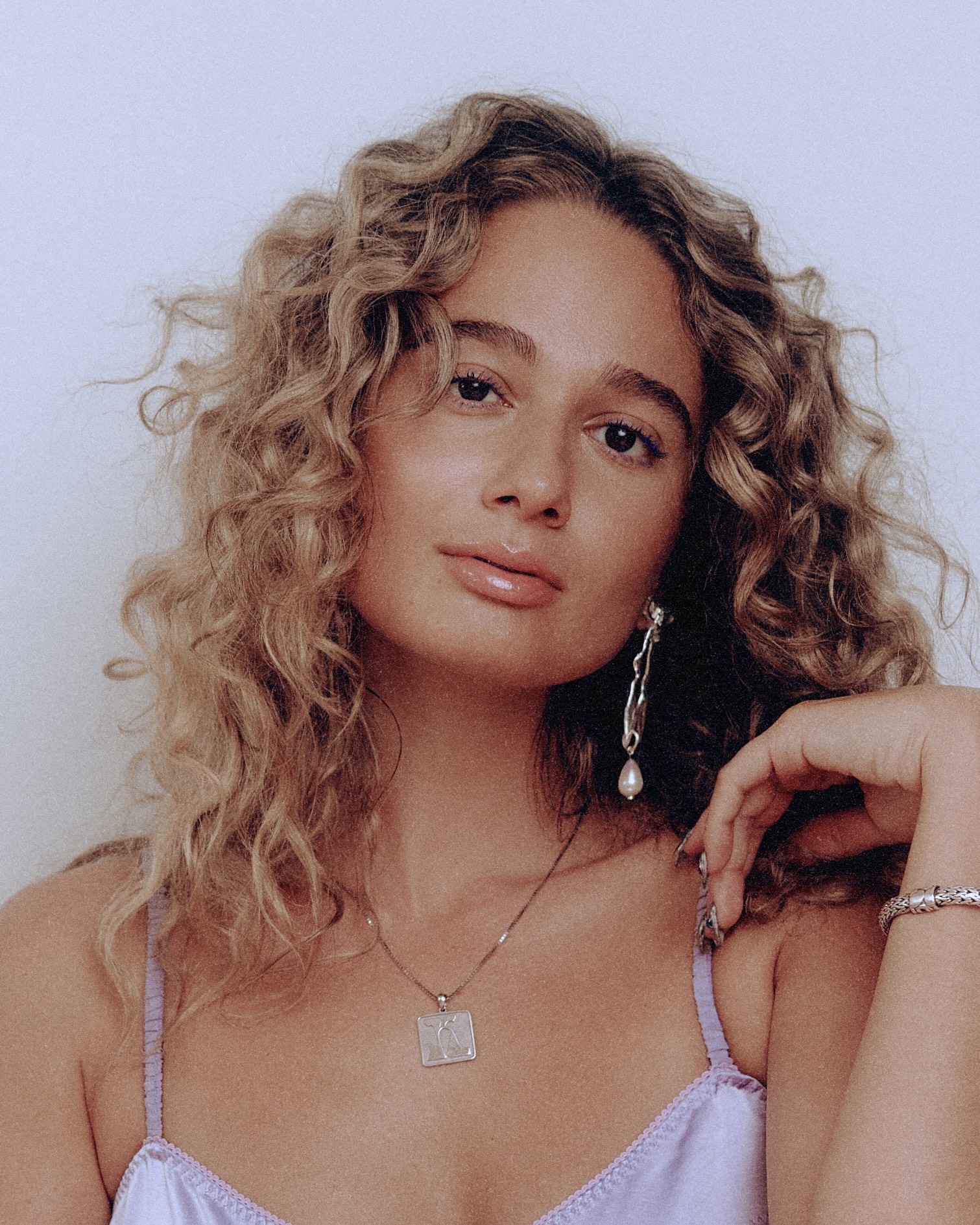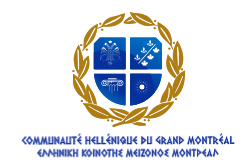
📸 Photo: (Credit Lian Benoit)
The Socrates-Demosthenes School is proud to present one of its Socrates II graduates, Cassandra Kouremenos – Kallitechnis.
Cassandra shared with us her journey after our school, the impact of her time at our school on her life and much more.
To find out more about our artist, we invite you to read this interview below.
1. Tell us a little bit about yourself!
My name is Cassandra Kouremenos. I’m a Greek Montrealer who’s born and raised in Park Ex (and I actually just moved to Los Angeles). I’m an independent artist and a professional singer/songwriter.
2. Reflecting on your time at L’Ecole Socrates-Demosthene, how do you think the school shaped your personal and academic growth, and in what ways did it contribute to your journey as a singer and songwriter?
Being a student at Socrates II really defined the person and artist I am today, (which is pretty wild to admit because it seems like my time there was so long ago). I think what made Socrates such an inspiring place to be was that it taught me from an early age that I can be a bit of everything. It encouraged this hybrid identity that in my adult life has become a superpower. Socrates was a safe space to be yourself whether you expressed yourself in Greek or English or French, whether you liked Greek dancing or not, whether you acted in plays or recited poetry or loved ancient history or sang carols at Christmas, whether you played soccer-baseball at recess or elastics. I remember doing it all and being encouraged to do so by all my teachers. There were so many possibilities. It was freeing to be able to develop my confidence and my own personality through all these different mediums. It’s no wonder that today, as a professional artist, I feel empowered to wear so many hats as a full-time creative.
3. Many successful individuals attribute their achievements to specific teachers or mentors. Are there any teachers or mentors at L’Ecole Socrates-Demosthene who played a significant role in your development, and how did they inspire or guide you?
A couple of teachers come to mind. There was Madame Marina who taught me in grade 1. She was so kind and supportive and I actually run into her around the city all these years later and she honestly hasn’t changed a bit! Another teacher who had a big impact on me was Madame Marie-Alixe. She’s multi-talented, artistic and so musical. I loved how she balanced traditional academics and creativity in her classes. I even ended up taking piano lessons with her when I was in high school. There was also one of my Greek teachers Kyrio Kosta. He was such a light in the classroom. He had a great sense of humour and he was a genuinely good human. He left such a positive impression on me and the other students. It was very obvious, even at the time.
4. Transitioning from school to a career in the music industry can be challenging. How did your experiences and lessons at L’Ecole Socrates-Demosthene prepare you for the challenges you faced in pursuing your passion for singing and songwriting?
Being at Socrates taught me to be confident in whatever I chose to pursue. Along with my parents who’ve always supported me as an individual no matter what I do, Socrates was a place where I built confidence in many areas. I always knew that I can make a difference in the world in many different ways. I didn’t entertain it at first, but I always knew in the back of my mind that I can have a career in music. I thought it was improbable, but it was still a lingering thought. As a young adult, after having completed a Bachelors in Psychology at McGill and not feeling entirely aligned with that path, I decided to give myself a chance to make a life in music a reality.
5. Montréal is known for its rich cultural diversity. As a Greek person, how do you feel your cultural background has influenced your artistry, and have you incorporated elements of your heritage into your music?
The biggest way I incorporate my cultural heritage into my music is through my artist name: KALLITECHNIS, which roughly translates to “master of craft”. It’s a way of always carrying my ethnicity with me, wherever I go.
6. In what ways do you think being multilingual, a characteristic often fostered in trilingual schools like L’Ecole Socrates-Demosthene, has been an asset in your music career, particularly in a diverse city like Montreal?
I think it’s allowed me to be proficient as a songwriter. When you study 3 languages, you inevitably become fascinated with words and linguistics and all the different ways you can express one thing. That’s kind of my job as a songwriter: I constantly come up with different ways to capture common human emotions.
7. The music industry can be competitive and demanding. Can you share some moments or experiences that tested your perseverance, and how did you overcome these challenges?
One of the most challenging moments came in 2018 when, only a year into my music career, I was offered a last minute opportunity to play OSHEAGA (Canada’s biggest music festival). I was struck with the biggest case of Imposter Syndrome. I felt unprepared, terrified, and unworthy, but I also knew that this was a moment I had to just step up, get uncomfortable, and do my best. And I did exactly that. It was a defining show in my career that created a lot of momentum. Years later I realise that those moments keep coming up. There will always be instances where you don’t think you’re good enough. My advice is that if it aligns with your vision and your aspirations, do it anyway. You’ll always surprise yourself with how well you can show up. We tend to underestimate ourselves in stressful situations and we tend to think about all the ways we can mess up, when we can instead imagine all the ways we can succeed! I’d rather invest my energy in the latter!
8. Being a role model for aspiring artists, what advice do you have for current students at L’Ecole Socrates-Demosthene who may be pursuing their own dreams in the arts or other fields?
SOUL OVER EGO. Make sure whatever you choose to do, that it fills you up first. Ask yourself if you’re doing it because it makes you happy. The most sustainable and fulfilling careers will be the ones in which we’re internally motivated to do the work. If we constantly seek validation from the outside, it’s an endless spiral into dissatisfaction. There will always be something or someone outside of us demanding our attention. You have to do it because it excites YOU! Only if it fuels YOUR SOUL can you then be of service to others.
9. Given your success, you likely have a global audience. How do you balance maintaining a connection with your Greek roots while appealing to a diverse international fanbase, and what does it mean to you to represent the Greek community on a global stage?
I’m actually trying to bridge this gap even more. As of now, I’ve only incorporated Greek into one song of mine. Moving forward, I’d love to collaborate with more Greek artists. I’d also love to spend a couple of months in Greece this upcoming year to work on writing and producing an entire project inspired by the culture. Inevitably, I’d like to shoot music videos there as well. I want to transfer some of my deep connection to Greek culture into the worlds of Alternative R&B, pop and soul, where a lot of my songs find themselves these days. I think fusing all of that together in a tasteful way that can be understood by everyone will be a challenge I’m up for. It feels like the next logical step for me creatively.



